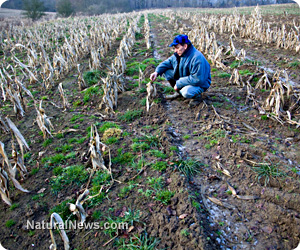
(NaturalNews) It has been 10 years since the Philippine government approved the country's first genetically modified (GM) crops for commercial cultivation, and its farmers are now far worse off becauseo f it. In the new documentary film 10 Years of Failure, Farmers Deceived by GM Corn, the farmer advocacy group Farmer-Scientist Partnership for Development, or MASIPAG, reveals the plight of GM corn farmers in the Philippines who were hoodwinked by the biotechnology industry and are now suffering from massive debt, poor yields and even starvation as a result.
The 25-minute film, which is available for free viewing on YouTube, was released on so-called "World Food Day," the day that Monsanto and Syngenta were given awards by the World Food Prize Foundation for their abominable transgenic creations. It tells a much different side of the GMO story, one you will probably never hear from the mainstream media or the bought-and-paid-for politicians that go around claiming that genetically engineered foods are the saviors of humanity.
On the contrary, GM crops, and particularly GM corn in the Philippines, has all but destroyed the traditional maize industry in this southeast Asian country. Rather than boost yields, reduce inputs and create crop stabilization as claimed, GM corn in the Philippines has completely ravaged what used to be an industry owned and managed by individual farmers rather than powerful multinational corporations. And the farmers who now realize that they were lied to are having a difficult time escaping the clutches of Big Biotech.
"In the film, GM corn farmers relate how they became indebted because of the rising cost of GM corn seeds and increasing cost and quantity of inputs being used," reads a press release about the film. "The film also share[s] the farmers['] account on the effect of GM corn farming such as emergence of new pests, soil erosion, corn contamination and human and animal health impacts... [and] the difficulty to go back to traditional or organic corn farming because of the loss of traditional seeds and practices replaced by GM corn farming and the effects of neighboring GM corn plantations."
READ MORE: http://www.naturalnews.com/044071_biotech_industry_GMOs_Philippine_farmers.html#
No comments:
Post a Comment